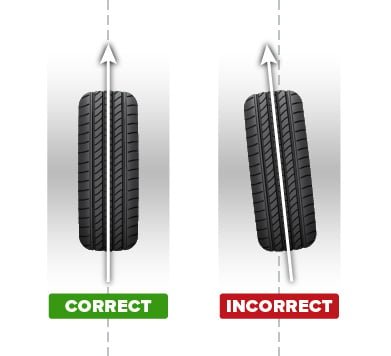
Discover How Much Does The Average Motorcycle Weigh – Insights
The average motorcycle typically weighs between 400 to 700 pounds, varying depending on the make, model, and style. This crucial metric plays a significant role in the handling, performance, and overall riding experience of a motorcycle. Understanding how much does the average motorcycle weigh is essential for both seasoned riders and newcomers alike. Let’s delve deeper into this weighty topic to unveil its impact on the world of motorcycling.
Exploring the Weight of Motorcycles
Motorcycles come in various shapes and sizes, each with its unique characteristics that affect their weight. If you’ve ever wondered how much a motorcycle weighs on average, you’ve come to the right place. In this article, we’ll delve into the world of motorcycles and explore the factors that determine their weight.
The Basics of Motorcycle Weight
Before we dive deeper into the specifics, let’s first understand what contributes to the weight of a motorcycle. The weight of a motorcycle is influenced by several factors, including its design, materials used, engine size, and additional features.
Design and Materials
The design of a motorcycle plays a crucial role in determining its weight. Some motorcycles are built with lightweight materials such as aluminum or carbon fiber to reduce overall weight, while others may prioritize durability and opt for heavier components.
Engine Size
The engine size of a motorcycle can significantly impact its weight. Larger engine sizes typically mean more components and additional weight, whereas smaller engines may result in a lighter overall bike.
Understanding Average Motorcycle Weight
While the weight of motorcycles can vary widely depending on the make and model, there is an average range that most bikes fall within. On average, a typical motorcycle weighs around 400 to 700 pounds. However, this can vary significantly based on the type of motorcycle.
Cruisers
Cruiser motorcycles, known for their larger frames and comfortable riding positions, tend to be on the heavier side. On average, a cruiser motorcycle can weigh anywhere from 600 to 800 pounds.
Sport Bikes
Sport bikes, designed for speed and agility, are generally lighter than cruisers. An average sport bike typically weighs between 300 to 500 pounds, making them more maneuverable on the road.
Dual-Purpose Bikes
Dual-purpose motorcycles, also known as adventure bikes, strike a balance between on-road and off-road capabilities. These bikes usually weigh between 350 to 500 pounds, allowing riders to tackle various terrains.
Factors Influencing Motorcycle Weight
Several factors contribute to the weight of a motorcycle, beyond just its design and engine size. Let’s explore some additional elements that can influence how much a motorcycle weighs.
Fuel Capacity
The size of the fuel tank on a motorcycle can impact its weight significantly. Bikes with larger fuel capacities will naturally weigh more due to the added weight of the fuel itself.
Suspension System
The type of suspension system a motorcycle has can also affect its weight. Some bikes come equipped with advanced suspension components that add weight but improve overall ride quality and handling.
Accessories and Add-Ons
Many riders customize their motorcycles with accessories such as luggage racks, crash bars, and additional lighting. While these add-ons enhance the bike’s functionality, they also contribute to its overall weight.
Importance of Motorcycle Weight
Understanding the weight of a motorcycle is crucial for both new and experienced riders. The weight of a bike can impact its maneuverability, stability, and overall performance on the road. By knowing how much a motorcycle weighs, riders can make informed decisions when choosing a bike that suits their riding style and preferences.
In conclusion, the average weight of a motorcycle can vary depending on various factors such as design, engine size, and additional features. While there is no one-size-fits-all answer to how much a motorcycle weighs, being aware of these factors can help you better understand the differences between various types of motorcycles. Whether you prefer a heavy cruiser or a nimble sport bike, the weight of your motorcycle plays a significant role in your riding experience.
How much does a motorcycle weigh
Frequently Asked Questions
What factors influence the weight of an average motorcycle?
The weight of a motorcycle can be influenced by various factors such as the type of the bike (sport, cruiser, touring), engine size, materials used in construction, and additional features like saddlebags or fairings.
Why is knowing the weight of a motorcycle important?
Understanding the weight of a motorcycle is crucial for riders to ensure they can handle the bike safely and confidently. It also impacts handling, maneuverability, and fuel efficiency.
What is the average weight range for motorcycles?
On average, motorcycles typically weigh between 300 to 700 pounds, with sport bikes generally being lighter and touring bikes on the heavier side of the spectrum.
Final Thoughts
In conclusion, the average motorcycle weighs around 400 to 700 pounds. This weight can vary depending on the type and model of the motorcycle. Riders should be aware of the weight of their motorcycle to ensure safe handling and maneuvering on the road. Understanding how much does the average motorcycle weigh is crucial for both novice and experienced riders alike.



